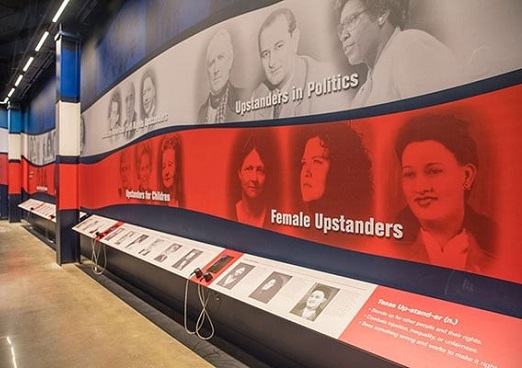Friday 29 January 2021
2020 was of course dominated by Covid but looking beyond that what else can we learn from the events of the year?
One lesson from 2020 is that taking personal responsibility is critical and that in many areas, particularly in large parts of the corporate world, the ‘stock’ of personal responsibility seems to be declining. This decline is the root cause of many of our problems around technology, the economy and sustainable development.
There were two high profile examples, among many, that were highlighted during 2020. The actions of Boeing that led to the 737 Max crashes and the actions of the companies behind the cladding on the Grenfell tower once again showed how pursuit of profit above integrity, quality and even life itself, driven by a culture set at the top, can over-ride individuals’ personal responsibility and integrity.
These cases, as with many others, were examples where people knew the truth and did not take action to prevent the organisation doing something very wrong. In the case of Boeing there was a clear cultural shift that started following the merger with McDonnel Douglas in 1997. The collective sense of what the company was meant to do shifted to increasing shareholder value and away from engineering great aeroplanes. When this kind of shift happens it creates a dissonance in the company and within individuals who either know about specific compromises, errors or lies, or at the very least sense the tension. It is of course hard for individuals to take effective action when their livelihood depends on keeping their job. Senior management have no excuse. They often take the rewards without taking the responsibility. Failures to act in the cases like the Boeing 737 Max and Grenfell show that the people in charge of the organisations concerned were leaders in name only, and certainly not real leaders.
There is a lot of talk about Corporate Social Responsibility, but talk is cheap. The examples of Boeing and the Grenfell disaster illustrate the fact that there can be no CSR without personal responsibility.
During a visit to the Holocaust Museum in Dallas in November 2019 I was struck by the categorisation of people during the holocaust as; perpetrators; bystanders; upstanders and of course victims. Although it may seem an extreme comparison there is a real parallel here. We need more upstanders and fewer bystanders.
The challenge for all of us as individuals is to have the courage to take responsibility and stand up when they see bad stuff happening, whether it be at individual, corporate, social or political levels, and that isn’t easy when your job is likely to be at risk. The challenge for organisational leaders is to create an environment where the purpose of the organisation is above profit, where personal responsibility is aligned with corporate and social responsibility, where people can genuinely achieve good work, and where upstanding is the norm as opposed to bystanding.
Be an upstander and not a bystander.

Comments
There is 1 comment on “Upstanding and Bystanding – Time for some Personal Corporate Social Responsibility”:
Dr Steven Fawkes
Welcome to my blog on energy efficiency and energy efficiency financing. The first question people ask is why my blog is called 'only eleven percent' - the answer is here. I look forward to engaging with you!
Email notifications
Receive an email every time something new is posted on the blog
Tag cloud
Black & Veatch Building technologies Caludie Haignere China Climate co-benefits David Cameron E.On EDF EDF Pulse awards Emissions Energy Energy Bill Energy Efficiency Energy Efficiency Mission energy security Environment Europe FERC Finance Fusion Government Henri Proglio innovation Innovation Gateway investment in energy Investor Confidence Project Investors Jevons paradox M&V Management net zero new technology NorthWestern Energy Stakeholders Nuclear Prime Minister RBS renewables Research survey Technology uk energy policy US USA Wind farmsMy latest entries



A thoughtfull article Steve and as always insightfull and pragmatic. My only concern though is that I believe shareholders and fund managers who are demanding ever greater results before safety have at least as great a responsibility as the corporate board. They need to be upstanders too.